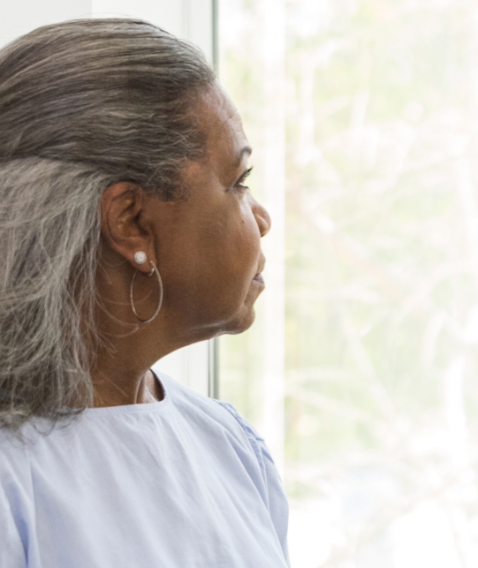Understanding Sexual Abuse Under The Guise of Medical Treatment
Sexual abuse under the guise of medical treatment is a uniquely pernicious form of sexual abuse that our community is only beginning to appreciate and understand. Patients in a health care system are socialized and expected to defer to the medical judgment of practitioners who exercise a position of educational and technical power over them in their treatment. As such, patients often do not immediately understand that their uncomfortable experience in a medical facility was in fact sexual assault. Empowering survivors to both recognize their experience for what it was and hold these abusers accountable is essential in removing abusers disguised by scrubs from their positions of power.
Sexual Abuse Statistics
- Over half of women have experienced sexual violence involving physical contact during their lifetime. Source
- Almost 1 in 3 men have experienced sexual violence involving physical contact during their lifetime. Source
- Someone experiences sexual assault in America once every 68 seconds. Source
- One in five girls and one in thirteen boys are sexually abused before the age of 18. Source
- Exhaustive data on sexual abuse under the guise of medical treatment has not yet been gathered.


Sexual Abuse in Healthcare Settings
Sexual abuse under the guise of medical care is particularly pernicious in that victims often do not understand what they are experiencing at the time– they only know that they feel violated. We are socialized to trust our healthcare system and defer to the medical judgment of licensed and trained physicians and health care staff when receiving medical treatment. No one expects to experience sexual abuse while receiving medical care. It may take time to fully process and metabolize that discomfort and trauma and recognize the experience for what it actually was. Some examples of sexual abuse under the guise of medical treatment are provided below:
Common Forms of Sexual Abuse Under the Guise of Medical Treatment:


If you have experienced any of the below scenarios, you may be a survivor of sexual abuse under the guise of medical treatment:
- A practitioner subjected you to a medical examination of an intimate body part without your consent that did not serve a medical purpose. For example, you went to the emergency room for a severe headache and received a prostate exam;
- A practitioner touched your intimate parts without wearing gloves;
- A practitioner pressured you into undressing when it was not medically necessary. For example, you went to a practitioner for a sprained ankle and they forced you to get naked;
- A practitioner made unwanted sexual comments about your body or made sexually suggestive expressions or gestures with their own body during an examination;
- A practitioner refused to allow a nurse to remain in the room with you during an examination;
- A practitioner coerced you into providing sexual favors in exchange for medical treatment or access to pharmaceutical prescriptions.
“I asked him, ‘is this necessary?’ I was so uncomfortable, but I’m not a doctor… I didn’t understand what was happening to me then, I just knew it didn’t feel right.” -Survivor of Dr. Fabio Ortega
Medical Practitioners Who May Engage in Such Abuse:
- Gynecologists and urologists
- Pediatricians
- Chiropractors
- Physical Therapists
- X-ray and imaging technicians
- Nurses and nursing assistants
- Cosmetic surgeons
- Emergency Medical Technicians
- Psychiatrists and therapists
- Anesthesiologists

Sexual abuse under the guise of medical treatment extends beyond physicians. Nurses and other medical personnel, including technicians, may misuse their position of trust by subjecting patients to unnecessary touching or harassment.

Institutional Sexual Abuse
Institutions like hospitals and other medical facilities have a duty to protect patients entrusted to their care. Where a patient is exploited within a healthcare system due to inadequate policies or oversight of an abusive employee, they may face accountability as well.
Notable Instances of Sexual Abuse Under The Guise of Medical Treatment
Dr. Richard Strauss
Dr. Strauss sexually abused more than 236 known male victims in his capacity as a physician for Ohio State University, subjecting student-athletes to medically unnecessary examinations of their genitals, among other abuse as severe as rape. OSU has paid over $60 million in settlements to victims to date, resulting from an independent investigation that concluded OSU coaches and administrators were aware of the abuse.
Dr. Robert Hadden
Dr. Hadden, an OB/GYN employed by Columbia University for his entire career, sexually assaulted over 226 patients who came forward. He is currently serving time in federal prison. Claims against the University were settled for $236.5 million
Dr. Robert Anderson
Dr. Anderson sexually abused more than 1,000 patients throughout his tenure at the University of Michigan. The former Team Physician for the UM Athletic Department, many of Dr. Anderson’s survivors were male student-athletes. Claims against the University of Michigan were settled for $490 million.
Dr. Fabio Ortega
Dr. Ortega was an OB/GYN who practiced with NorthShore University Health System / Swedish Covenant Hospital. He pled guilty in 2021 to sexually abusing his patients. Survivors continue to come forward as they recognize the vaginal and breast “examinations” he subjected them to were often medically unnecessary and/or conducted for his sexual pleasure. Litigation is ongoing.
Dr. Larry Nasser
Dr. Nasser sexually abused more than 500 student-athletes throughout his tenure as the team doctor for the U.S.A. Gymnastics team and an additional 300 student-athletes in his capacity as a physician of Michigan State University. Claims against the institutions were settled for a collective $880 million.
Dr. George Tyndall
Dr. Tyndall, a former gynecologist for the University of Southern California sexually abused over 18,000 women throughout his tenure at USC. Claims against the university were settled for more than $1 billion.
Dr. Derrick Todd
Dr. Todd was a rheumatologist who practiced at Brigham and Women’s Hospital and Charles River Medical Associates in the Boston, Massachusetts area between 2009-2023. Over 200 former patients have come forward as sex abuse victims in recently filed litigation. Dr. Todd allegedly subjected patients to medically unnecessary and inappropriate vaginal, breast, and anal examinations. He has not been criminally charged at this time.
Dr. James Heaps
Dr. Heaps, a former gynecologist at the University of California, was recently sentenced to 11 years in prison for sexually abusing at least 500 female patients. Dr. Heaps conducted medically unnecessary examinations groped, and sexually harassed patients. The university has paid out nearly $700 million to victims.
Ortega Survivors Speak
Self-Care for Survivors
Navigating your healing journey is an individual experience. What feels empowering for one survivor may be triggering for another, and what feels triggering for you in one phase of your healing process may become empowering at a later time. The trauma of experiencing sexual abuse can make a survivor question their own reality, judgment, and intuition. Throughout your healing process, it is important to reconnect with your intuition and follow the path that feels most authentic and helpful to you. Some potential pathways that you may consider as you navigate processing this traumatic event include:

Recognizing Your Triggers and Creating a Plan to Navigate Them
Each individual’s triggers will vary and may shapeshift over time as you metabolize the shock and pain of your own experience. It is not uncommon for survivors of sexual abuse to experience severe anxiety and depression or engage in behaviors that harm themselves when confronted with a severe trigger. For some survivors, educational media intended to raise awareness about sexual violence can trigger distress. Consider implementing filters throughout the content you engage with to ensure this media is not reaching you unexpectedly and uninvitedly. Attending medical appointments may become a deeply triggering event for you. Discuss with someone in your support network how you will best navigate engaging with the healthcare system as you heal. For example, consider having a trusted person from your support network accompany you to appointments who can act as a liaison to communicate potential anxiety throughout the session. Establish clear boundaries for each trigger, and ideally, collaborate with a mental health professional to formulate a safety plan.
Curating Your Support Network.
You are in control of whom you allow to access you and your trauma. Only you know who can be trusted as a safe space with your story and the symptoms you are experiencing. Whether those people are family members, friends, other survivors of sexual abuse, or mental health professionals– do not go through this journey alone. Nor should you feel pressured to share your story with family members or other loved ones with whom you do not feel emotionally safe. Access to you is a privilege, and you should feel empowered to unapologetically take control of who is a member of your support team.
Considering Consulting with a Therapist:
Considering therapy after experiencing sexual assault or abuse is a significant step towards healing. Therapy can offer a supportive environment to address challenges and develop coping skills, providing a safe space to explore thoughts and emotions. Trust your intuition in deciding upon the right therapist for you.
Prioritizing Yourself.
Only you will know when you are ready to disclose what happened to you and to whom you will trust with your story. Before you can be a beacon of hope for other survivors and a leader in holding abusers accountable, you must first survive. The legal process of engaging with law enforcement and attorneys–while necessary to protect future victims from harm–is emotionally burdensome to survivors who may need more time to heal. You are allowed to take care of yourself and restore your strength before telling your story. Trust your instincts and intuition with whom you decide to work if and when you engage legal counsel. Consider working with a lawyer to ensure the statute of limitation on your legal claim does not expire while you heal.


Supporting a Survivor
Believe:
Affirm your belief in the survivor’s experience. Assure them that you trust what they’re sharing and that you’re there to support them without judgment, even if you don’t fully understand their experience.
Listen:
Provide a safe space for survivors to share their stories at their own pace. Refrain from interrupting or asking too many questions, and allow them to express themselves on their terms.
Respect Options:
Respect the survivor’s autonomy by refraining from pressuring them to report to the authorities. Understand that everyone copes differently, and empower the survivor to make decisions about their healing journey.
Validate:
Validate the survivor’s feelings and reactions as normal responses to a traumatic experience. Avoid dismissing their emotions or rushing their healing process.
Empower Decision-Making:
Encourage the survivor to take control of their own decisions regarding their recovery process. Offer information about available support services but allow them to choose the path.
Practice Self-Care:
Take care of your well-being, and remember that supporting a survivor of sexual trauma can be emotionally taxing on you as well. Prioritize your self-care to ensure you can offer sustainable support to the survivor.
What We Want You to Know
UndertheGuise.org stands with survivors of sexual abuse, including those who have experienced misconduct in medical settings. By raising awareness, providing support, and advocating for change, we aim to create safer environments for all patients.
